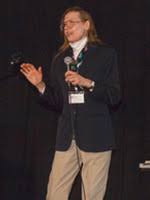Jo Ann Oravec | Source | Professor at University of Wisconsin-Whitewater
Jo Ann Oravec
Jo Ann Oravec (MA, MS, MBA, PhD) is a full professor in the College of Business and Economics at the University of Wisconsin-Whitewater (Department of Information Technology and Supply Chain Management), as well as the Holtz Center for Science & Technology Studies, UW-Madison. Her publications include Good Robot, Bad Robot: Dark and Creepy Sides of Robotics, AI, and Autonomous Vehicles (Springer) and Virtual Individuals, Virtual Groups (Cambridge University Press). She was the first chair of the Privacy Council of the State of Wisconsin. She was a visiting fellow at both Oxford and Cambridge.
-
How Accurate Are Lie Detectors and Should We Use Them?
This April 2023 article featured my research about artificial intelligence and lie detection.
Article
-
https://www.bbc.com/future/article/20190104-are-you-a-digital-hoarder
Jo Ann Oravec, professor of information technology and business education at the University of Wisconsin-Whitewater, says that hoarding is not necessarily about the amount of information we’re each storing. Instead, it’s whether we have an “empirically-supported sense of control” over this data. If we do, it’s not hoarding.
But she argues that as we all start to accumulate more data, more of us are going to lose this control. “My students tell me it's nausea, it's a sense of disequilibrium when they begin to look through the masses of photos that they have,” she says.
The level of digital clutter that will result in feeling overwhelmed is going to be different for each person, says Neave. “If they get to that point where they've become overwhelmed by the data that they've got, that they can't find things, that things are getting lost... that may indicate that there’s some kind of problem.”
So why are we all in this mess in the first place? Platforms like Google Drive are “open temptations” for hoarding because they make it so easy for us to accumulate files and almost never prompt us to review them, says Oravec. “The sense that something is retrievable if we just store it somewhere provides a false sense of security.”
And there’s plenty of storage available. In Sedera’s digital hoarding study participants reported that they had access to 3.7 terabytes on average.
Some think that because they’ve enabled it, tech companies should help fix our digital hoarding tendencies. Sedera believes there will soon be platform-agnostic ways of indexing and curating all our data across devices, similar to how the contacts on your phone sync across apps.
Oravec agrees that tech companies can – and should – rethink how they enable some of our hoarding tendencies. But she’d also like to see individuals take more responsibility for curating their own digital possessions, seeing archiving as a necessary task like going to the dentist.
This curation doesn’t have to be as dreaded as a root canal, though, and could even be considered an investment in our future self-identity. Oravec says her aunt, who recently died age 100, carefully put together six photo albums that spanned her whole life. “She selected and curated those photos from the many that she shot while on vacation or at family reunions and sculpted a strong sense of self from this process,” she says.

